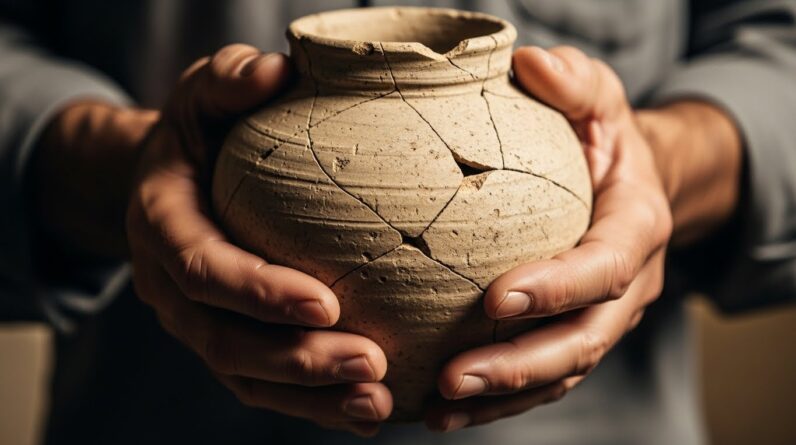God’s Promise To Never Leave You In Dark Valleys
You’ve walked through valleys—metaphorical and sometimes literal—that felt too deep to climb out of. You know the weight of loneliness, fear, grief, or discouragement; those long nights when it seems like God is distant. But the Bible gives a clear and tender promise: God is with you even in the darkest places. When the voices in your head whisper that you’re forgotten, hold fast to the truth that God never leaves us. This article walks with you through Scripture, practical steps, and pastoral insight so you can feel and live in the reality of God’s abiding presence.
The valley you’re in is real — and so is God’s presence
Valleys are part of life. They can be a season of loss, a trial, a long wait, depression, or a crisis of faith. You may feel exposed, vulnerable, and afraid. But valleys are not proof of God’s absence; they’re the context in which God proves His presence. Scripture repeatedly speaks of God’s nearness in trials. When you’re in a valley, it can help to remember that valleys are not meant to be permanent dwelling places; they are places of refining, teaching, and deepening intimacy with God. And because you are not alone, you can move forward with hope—because God never leaves us.
What “valley” means in biblical language
In the Bible, “valley” often symbolizes low points in life—times of testing, grief, or persecution. The psalmist uses the valley image to describe walking through a place of deep darkness and danger, but also to describe God’s comforting presence right there with you. Understanding the biblical use of this metaphor helps you reframe your situation: rather than a sign that God has abandoned you, the valley can be the very place where God’s presence becomes most powerfully real in your life.
The Shepherd who walks with you: Psalm 23:4
David’s words are some of the most comforting in Scripture. He writes, “Even though I walk through the darkest valley, I will fear no evil, for you are with me; your rod and your staff, they comfort me” (Psalm 23:4). This verse doesn’t promise you a life without valleys; it promises that you will not face them alone. The imagery of a shepherd is intimate—someone who knows you, watches over you, guides you, and protects you. When you read Psalm 23:4, remember the pastoral care figure who leads, corrects, and comforts. That is God’s role in your valleys.
How the shepherd’s tools bring comfort
The “rod and staff” are not abstract spiritual objects; they represent God’s protection and guidance. The rod wards off predators; the staff gently steers the sheep back on course. When you feel scattered or threatened, think of God’s hands steadying and protecting you. Your fear does not have to rule you because the shepherd is present. In these moments, you can rest in the assurance that God never leaves us—even when the path feels uncertain and the shadows are long.
God’s promise up close: Hebrews 13:5
Hebrews gives a direct, simple promise that addresses the human fear of abandonment: “Never will I leave you; never will I forsake you” (Hebrews 13:5). This is more than comforting words; it’s a covenantal pledge. God’s commitment to you is not based on how well you’re doing, how spiritual you feel, or how impressive your faith is. It stands on God’s character. When you face the temptation to believe that God has turned away because of your failure, remember that God never leaves us—He is faithful even when we’re not.
What does this promise change for your fear
If God will never leave you, then fear loses its ultimate control. You do not have to perform for God’s affection, and you don’t need to manufacture constant feelings of closeness. His presence is not an emotional bonus; it is an unchanging reality. This frees you to be honest with God about your pain, to seek help, and to keep moving forward. Because God never leaves us, you can risk vulnerability without the terror of abandonment.

Biblical anchors for God’s presence
The Bible is full of verses that echo the promise of God’s presence. Consider these passages and feel your faith strengthened: Isaiah’s reassurance, Deuteronomy’s command with a promise, Jesus’ final words to His followers, and Paul’s declaration about nothing separating you from God’s love.
- Isaiah 41:10 — “So do not fear, for I am with you…”
- Deuteronomy 31:6 — “Be strong and courageous. Do not be afraid or terrified because of them, for the LORD your God goes with you…”
- Matthew 28:20 — “And surely I am with you always, to the very end of the age.”
- Romans 8:38-39 — “Neither death nor life… will be able to separate us from the love of God that is in Christ Jesus our Lord.”
Each of these passages reinforces a single, steadfast truth: God never leaves us. When you memorize and meditate on these promises, they become lifelines in the dark.
How God’s presence is practical, not just poetic
You might wonder how an unseen presence becomes practical in your daily life. The answer is simple: God’s presence changes how you make decisions, how you respond to stress, how you handle relationships, and how you persevere. His presence brings perspective, comfort, and strength. Rather than being an abstract doctrine, God’s nearness is a practical resource. You can ask for guidance, receive peace that passes understanding, and find the courage to take your next step. Keep reminding yourself that God never leaves us, and then act on that truth in concrete, measurable ways.
Examples of practical presence
When you pray and feel heard, that’s God’s presence. When a friend arrives at the right moment, God often uses them as His hands. When wisdom breaks through confusion, that’s the Lord guiding you. These are not mere coincidences; they are the everyday ways God walks with you. Life becomes less about your efforts to control outcomes and more about partnering with God as He shepherds you through each valley.
How to experience God’s presence in the valley
Experiencing God’s presence is both a promise and a practice. You don’t have to wait for an emotional peak to feel near to God. There are spiritual habits you can cultivate that open your awareness to Him.
- Pray with honesty. Tell God exactly how you feel; He can handle it.
- Meditate on Scripture. Let verses like Psalm 23:4 and Hebrews 13:5 soak into your heart.
- Worship, even when you don’t feel like it. Worship redirects your focus from fear to God.
- Invite the community. Share your valley with trusted believers who can pray and support you.
Practice these habits because presence often comes through discipline as much as through emotion. When you do these things, you’re positioning yourself to receive what God wants to give you in the valley—and reminding yourself that God never leaves us.
When it feels like God is silent
You may have seasons when God seems distant or silent. Silence doesn’t equal absence. Sometimes God’s silence is a space to deepen trust, to teach dependence, or to prepare you for a greater work. God’s quietness can feel like a test, but Scripture assures you He is still there. Keep acting on the promise of His presence even when you can’t feel it. Practically, that means continuing to pray, read Scripture, worship, and engage in community. Trust is developed most in times of uncertainty. And keep clinging to the truth: God never leaves us, even when He is silent.
What to do when silence is painful
If silence hurts, don’t isolate. Tell a friend or pastor. Seek counseling if needed. Keep a journal of prayers and God’s past faithfulness; looking back often strengthens you to keep going forward. Silence can also be a season of waiting, and waiting is an active spiritual posture. Your job isn’t to force answers but to be faithful in the small things. As you do, your faith muscles grow—and you’ll find that silence was not emptiness but a hidden preparation. Remember, God never leaves us during these seasons either.
Practical spiritual habits that keep you aware of God
You grow in awareness of God’s presence by practicing rhythms that root you in reality. These habits aren’t magic, but they orient your heart to God’s nearness and help you remember His promises.
- Daily Scripture reading: Focus on passages that affirm God’s presence, like Isaiah 41:10 and Hebrews 13:5.
- Prayer rhythms: Morning, midday, and evening check-ins with God keep you tethered.
- Sabbath rest: Setting aside time to stop proves you trust God’s provision.
- Community involvement: Regular fellowship keeps your faith from becoming isolated.
These habits help you internalize the truth that God never leaves us. They train you to see God’s fingerprints in ordinary life and to respond with faith rather than fear.

When the valley is prolonged: hope without timelines
Some valleys last longer than you want. Chronic illness, long-term unemployment, or extended grief can stretch patience nearly to breaking. It’s tempting to demand a quick rescue or to become bitter. Instead, cultivate long obedience and small acts of trust. Hope that doesn’t depend on a timeline is mature. It rests on God’s faithfulness, not on your understanding of the timetable. Keep planting small seeds of obedience, keep loving well, keep serving, and keep praying. These steady acts of faith become a testimony that God never leaves us—even when deliverance seems delayed.
The role of the community in prolonged valleys
You weren’t meant to carry prolonged valleys alone. Community sustains you when your strength wanes. Let others bear the load with you—emotionally, practically, and spiritually. Real friends and church families can be the instruments by which God manifests His presence. When you accept help, you’re allowing God to show up through people. And remember: getting help is not a failure. It’s a recognition that God designed you for relationships and that He often works through others because God never leaves us, and sometimes He acts through the hands of friends.
Healing the wounds the valley causes
Valleys leave scars—emotional, spiritual, and sometimes physical. Healing takes time, prayer, and often professional support. God’s presence is a balm for wounds, but you also need practical steps: counseling, rest, good nutrition, and supportive relationships. Allow yourself to grieve, but don’t live there forever. God’s promises invite you into restoration, not a perpetual replay of pain. The Lord’s nearness helps transform wounds into wisdom and scars into sources of compassion for others. Keep claiming the truth that God never leaves us as you move toward healing.
Testimonies: real people who found God in the valley
Stories matter because they give you visible proof that God’s promises are more than words. I’ve seen people who lost jobs find renewed purpose, parents who grieved find comfort and strength, and addicts who were broken and then rebuilt into new lives. In each case, the common thread was not a sudden removal of the hardship but a dawning awareness that God was present through it. When you read these stories or hear them firsthand, you’ll recognize patterns: honesty in prayer, consistent community support, steady spiritual habits, and the refusal to give in to despair. These are the ways God never leaves us show up in ordinary lives.
Your story matters too
Don’t underestimate how your valley—once walked through—can minister to others. Your testimony of God’s presence in the dark will encourage someone else who is still walking a hard road. It’s often your scars that become the map for someone else’s healing. Keep a record of how God has been faithful to you. Write it down. Share it when the time is right. Your testimony will reinforce your faith and become a beacon to others who need to know that God never leaves us.
When doubt tries to steal your trust
Doubt is normal. Even the disciples wrestled with it. What matters is how you respond to doubt. Instead of hiding it, bring your questions to God and to trusted believers. Make a practice of testing doubts against Scripture, prayer, and honest conversation. Faith that persists despite doubt is often deeper and more resilient. Remember that doubt is not the opposite of faith; it can be a doorway to a more authentic relationship with God. Keep holding onto the promises—like Psalm 23:4 and Hebrews 13:5—and remind yourself daily that God never leaves us.
How pastors and leaders can help you in the valley
As a pastor, I want to meet you in your valley, not lecture you from a safe distance. Leadership in the church should be about presence—visiting the sick, calling the discouraged, praying with the broken, and helping with practical needs. When you reach out, allow leaders to come alongside you. Don’t wait until you’re out of the valley to let people help. In fact, one of the clearest ways God manifests His promise that He never leaves us is through the tangible compassion of His people.
What can you ask from your church
Ask your church for prayer visits, practical assistance, counseling referrals, and spiritual mentorship. A healthy church won’t shame you for your valley; it will support you through it. If your local church struggles to be present, seek out individuals or small groups where you can experience the shepherding care God intended. Don’t survive alone—flourish in community, because God never leaves us to fend for ourselves.
Final encouragement: hold fast to the promise
The valley does not define you. You are determined by the Shepherd who walks with you. Keep returning to the promises of Scripture. Let Psalm 23:4 steady your heart and Hebrews 13:5 anchor your soul. When fear tells you you’re alone, speak truth back: God never leaves us. When loneliness whispers that you are forgotten, remind yourself of God’s covenant love. And when hope seems faint, do one small faithful thing today—pray a brief prayer, read a verse, or call a friend—because small acts of faith keep you moving forward.
You can trust God to guide you through the valley and out the other side. God’s presence is not a guarantee that life won’t hurt; it’s a guarantee that you won’t walk through the hurt alone. Embrace the promise, live it out in community, and let your life become a living testimony that God never leaves us.
Explore More
For further reading and encouragement, check out these posts:
👉 7 Bible Verses About Faith in Hard Times
👉 Job’s Faith: What We Can Learn From His Trials
👉 How To Trust God When Everything Falls Apart
👉 Why God Allows Suffering – A Biblical Perspective
👉 Faith Over Fear: How To Stand Strong In Uncertain Seasons
👉 How To Encourage Someone Struggling With Their Faith
👉 5 Prayers for Strength When You’re Feeling Weak

📘 Jesus and the Woman Caught in Adultery – Grace and Mercy Over Judgement
A powerful retelling of John 8:1-11. This book brings to life the depth of forgiveness, mercy, and God’s unwavering love.
👉 Check it now on Amazon
As a ClickBank & Amazon Affiliate, I earn from qualifying purchases.
Acknowledgment: All Bible verses referenced in this article were accessed via Bible Gateway (or Bible Hub).
“Want to explore more? Check out our latest post on Why Jesus? and discover the life-changing truth of the Gospel!”








